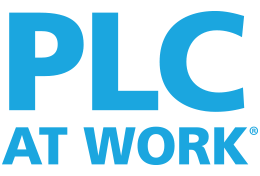DEMOGRAPHICS
Manistee Area Public Schools fosters an inclusive, diverse education for all learners, from preschool through 12th grade. With dedicated buildings for each level—preK–2, 3–5, and 6–12—the district prioritizes 21st-century learning environments. Their mission centers on inspiring students and supporting their educational journeys within a connected Manistee learning community.
1,245 Students
- 50% free or reduced lunch
- 13.6% students with special needs
MANISTEE AREA PUBLIC SCHOOLS' CHALLENGE
Before embracing the Professional Learning Communities (PLC) at Work® process, Manistee Area Public Schools (MAPS) faced significant challenges, particularly concerning student assessment. Test scores revealed gaps in student mastery, indicating a lack of clarity in defining learning outcomes. The district recognized they weren’t consistently meeting the needs of every student, every day, at every skill level.
Furthermore, secondary collaboration was fragmented. Teachers, often isolated in single-subject roles, lacked structured time for meaningful teamwork. While grade-level meetings occurred, they lacked focus and direction, leading to inconsistent practices. Recognizing the need for systemic change, superintendent Ronald Stoneman initiated a districtwide effort to adopt the PLC at Work process, aiming to transform their approach to teaching and learning.
IMPLEMENTATION
The transformation of MAPS to PLC at Work was deeply intertwined with a desire to enhance its assessment practices. This journey began with superintendent Stoneman building the foundation from 2016 to 2019. Curriculum director Amber Kowatch was hired in January 2019 to take on this work, further establishing a collaborative culture and creating a guiding coalition to establish a shared mission and vision.
In February 2019, a core group of administrators and teachers attended the Summit on PLC at Work in Phoenix, Arizona, and upon returning, that group launched a book study for Learning by Doing: A Handbook for Professional Learning Communities at Work by Richard DuFour, Rebecca DuFour, and Robert Eaker.
Expert Geri Parscale then presented the foundational understanding of PLC concepts for all staff, kicking off the 2019–2020 school year. That same year, the district established “Late-Start Mondays” to provide dedicated time for collaborative teams to meet, and the full teaching staff engaged in the Learning by Doing book study to begin the work.
This focus on assessment became particularly crucial as they navigated the challenges of hybrid and virtual learning during the 2020 pandemic. As they navigated the return to school amidst the COVID-19 pandemic, Manistee brought in PLC expert Dr. Anthony Muhammad to address the critical need for a strong, supportive school culture. Dr. Muhammad’s message emphasized the importance of educators’ roles in meeting students’ needs, particularly during challenging times.
During the 2020–2021 school year, amidst the challenges of hybrid learning, Manistee finalized its essential standards and began preliminary discussions about assessment design. They adopted another book study, Design in Five: Essential Phases to Create Engaging Assessment Practice by Nicole Dimich, to guide their assessment refinement journey. The district also invested in professional development and coaching led by Angie Freese, who focused on formative and summative assessment strategies.
Additionally, they engaged in another book study, Taking Action: A Handbook for RTI at Work™ by Austin Buffum, Mike Mattos, and Janet Malone, using it to develop better support systems for challenging behaviors. This work helped them clarify specific strategies for addressing student needs and informed their approach to intervention within the PLC framework.
In the summer of 2022, Manistee focused on strengthening its intervention systems to support its assessment goals. They participated in the RTI at Work™ Coaching Academy and Yes We Can! workshops and had professional development days led by Dr. Kristen Bordonaro. These efforts resulted in more robust Tier 2 intervention programs for students K–12, and assessments were used to identify students for interventions, monitor progress, and adjust support as needed.
MAPS also developed learning progressions, which were crucial in informing assessment design and ensuring that assessments accurately measured student growth toward essential learning targets. Data protocols were established to guide data analysis and decision making within collaborative teams. In the 2023–2024 school year, they began exploring extension activities, aiming to provide enrichment for all learners.

RESULTS
Through this ongoing journey of learning and collaboration, MAPS successfully integrated assessment as a core component of their PLC framework, resulting in a more data-driven and responsive learning environment for all students.
This transformation led to significant improvements in student achievement, including student proficiencies:
Major improvements:
- Kindergarten math: Increased from 69% in 2020–2021 to 82% in 2023–2024
- Third-grade English: Increased from 26.20% proficiency in 2020–2021 to 45.70% in 2023–2024
- Sixth-grade English: Increased from 34.10% in 2020–2021 to 45.60% in 2023–2024
M-STEP ELA Trends
M-STEP Math Trends
WHY PLC AT WORK®?
Professional learning communities (PLCs) are schools that empower educators to work collaboratively in recurring cycles of collective inquiry and action research to achieve better results for the students they serve.


